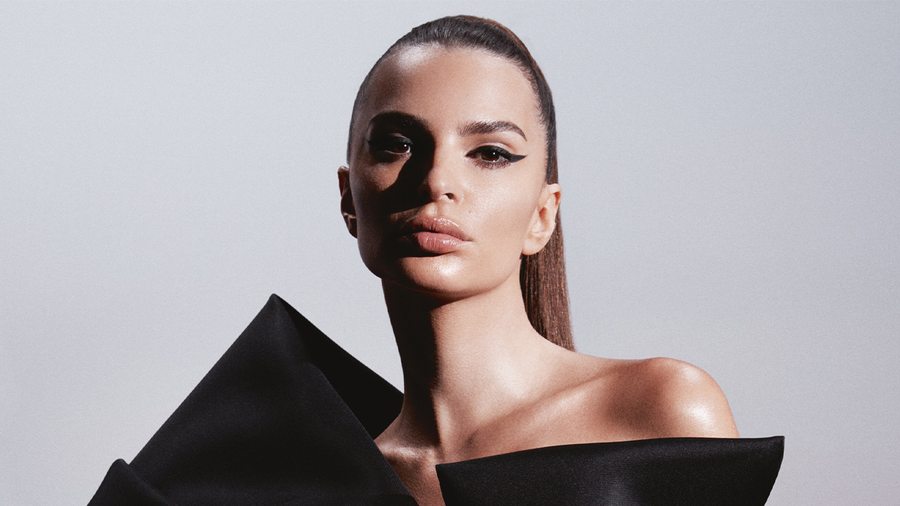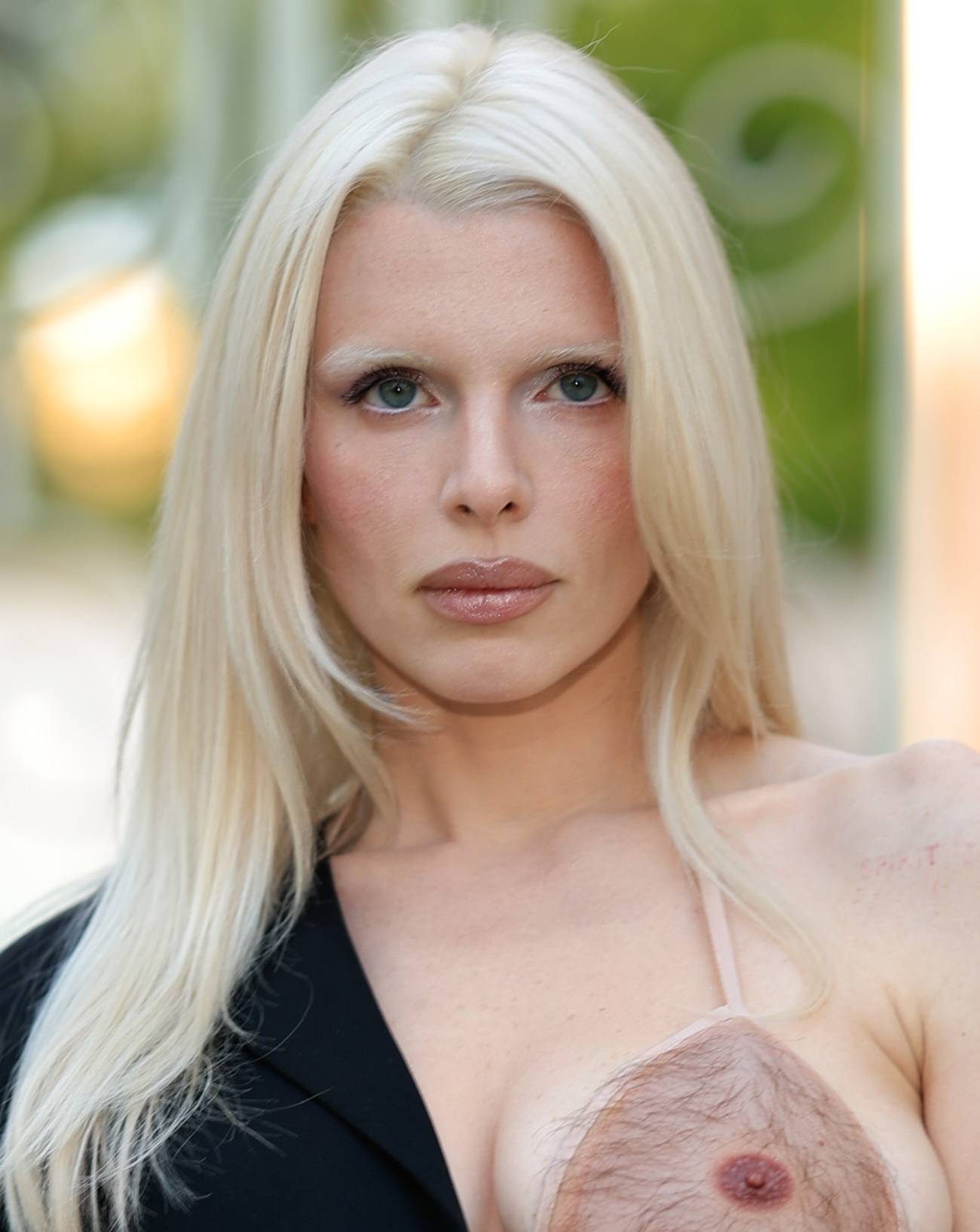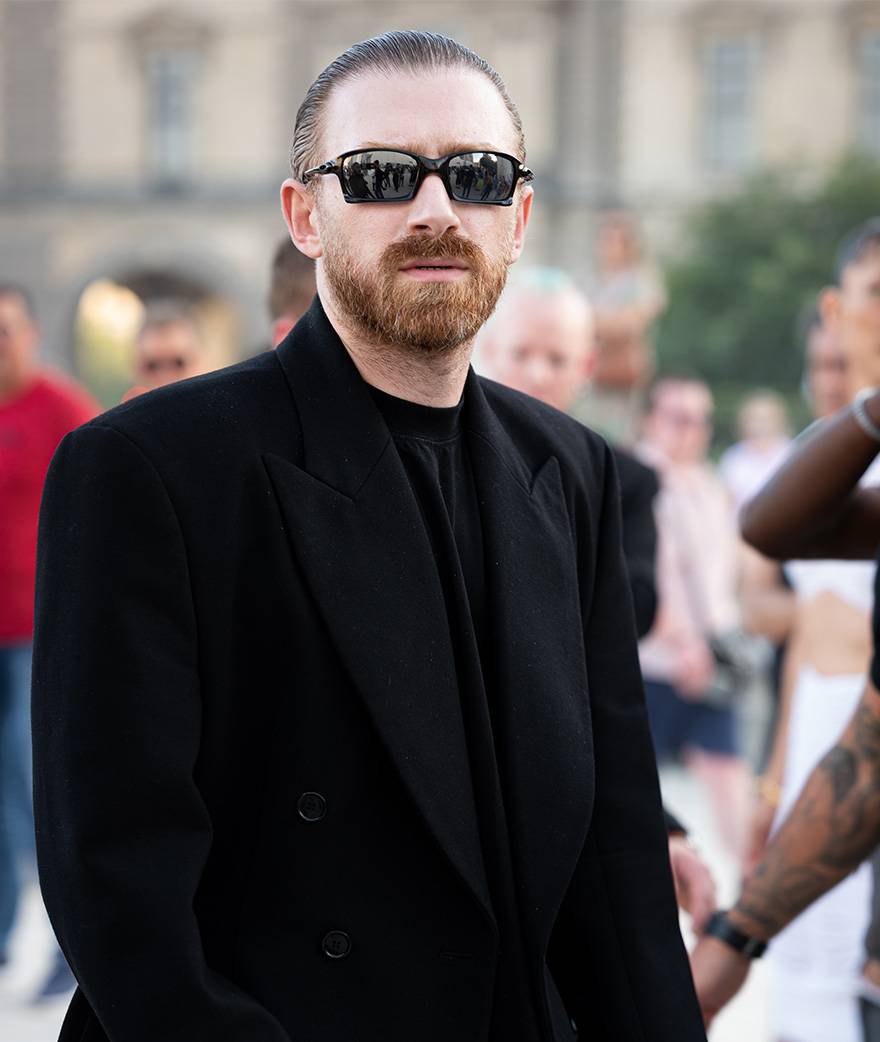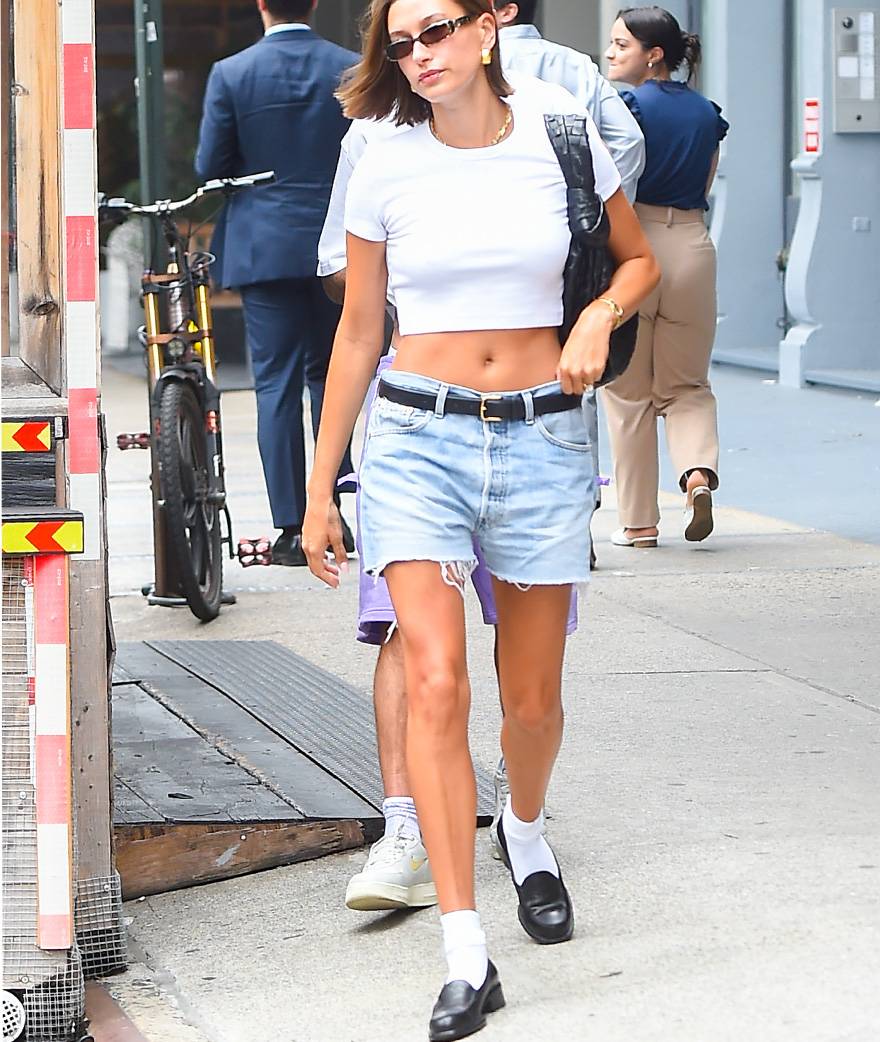“Watch out! Beneath my breast there’s a grenade.” Clara Luciani’s anthem fits Emily Ratajkowski like a glove. The 32-year-old American beauty, also known as EmRata, first exploded to fame in the video for Robin Thicke’s Blurred Lines ten years ago. Appearing topless, she instantly became a celebrity phenomenon – everyone was talking about her sizzling curves, mouth, and backside. Little by little she proved there was far more to her than her physical attributes, as she struck out in multiple directions, from modelling, writing, acting, and business (she heads the lingerie and swimwear brand Inamorata) to social media – she has over 30-million Instagram fans –, podcasting (High Low with EmRata), and feminist activism.
After appearing in David Fincher’s mystery thriller Gone Girl (2014) and in I Feel Pretty (2018), Ratajkowski published an important book, My Body (Metropolitan Books, 2021), “a profoundly personal exploration of feminism, sexuality, and power, of men’s treatment of women and women’s rationalizations for accepting that treatment.” A manifesto of female emancipation, the book is a nuanced exploration of the issues around the commodification of women’s bodies and their sexuality.
Interview with Emily Ratajkowski, model, actress, activist and Viktor & Rolf fragrance muse
In prose as incisive as it is elegant, EmRata talks about sexual assault but also about her pregnancy and her relationship with her body, emerging as an important voice in the #MeToo and feminist movements. At once a spectacular beauty and a razor-sharp mind, Emily Ratajkowski is perfect as the ambassadress for Viktor & Rolf’s new fragrance Flowerbomb Tiger Lily (she’s also the face of the perfume Flowerbomb). The bottle for this floral, sensual, and sunny scent resembles a facetted diamond, exalting a femininity that is as fiery as it is delicate, a true weapon of mass seduction – just like the woman who represents it, and who gave Numéro a very rare interview.
Numéro: You’re a model, author, actor, podcaster, activist, businesswoman, and so much more. How would you define yourself?
Emily Ratajkowski: I would say that there are some things that I consider work, for example modelling. That’s how I earn my living, which is fabulous. And I adore working in fashion, since it allows me to meet so many interesting and creative people. There’s a real feeling of community that I like in the business. But my priority interests are writing and, most of all, my son – the fact of being a mother – and my family.
In 2021, you brought out a best-selling book, My Body. Was writing it cathartic for you?
Yes, totally. It began very simply out of a desire to write for myself, without looking to do a book. I’ve always liked to read and write, but I hadn’t written in a long time. So I took it up again to try to sift through my memories and find out what I believe in and what I think of the world through the filter of my lived experience. I suddenly thought, “Wait, this could be a book!” So yes, it was very cathartic.
“I don’t think you can call yourself a writer until you’ve written a second book.” - Emily Ratajkowski
There are lots of inspiring sentences in your book, and there’s one that particularly stood out for me: “You thought you were a mind, but you’re a body.”
That came from my experiences as a woman and as a feminine-presenting person. When you’re inside your body and you think about what is deeply you, you see yourself as a complex being who has many memories and also many aspirations that they’d like to accomplish in the real world. But when, all of a sudden, you find yourself being objectified, all this complexity brutally disappears and you’re reduced to something much smaller that’s limited to your appearance. I think it’s something all women and feminine-presenting people have experienced. And if your livelihood is linked to your appearance and your sexuality, it happens even more.
Are you working on another book?
I didn’t have time last year, there was too much going on – my son was still a baby and I was recording a podcast several times a week. But I’m coming out of that phase. My son is now going to school, so I have a bit more time for myself. Personally, when I write, I spend 80% of my time sitting waiting for something to come. I’m incapable of doing an hour here and an hour there – and I’m very jealous of people who can! I hope to start writing again soon, because I miss it a lot. And, as I was telling a friend the other day, I don’t think you can call yourself a writer until you’ve written a second book.
Did becoming a mother change your life?
Oh my god yes, it changed so many things, far more than I imagined... It’s a very personal reaction, but maybe others have gone through the same thing: my son really led me to give priority to joy and happiness. Because he’s growing up so fast – I can see the changes happening by the day – I decided to make the most of this experience. I feel a sort of sense of emergency that makes me want to seize every instant I can spend with him. Which is absolutely wonderful, because it applies to everything else too – my child taught me how to find joy in everything I do, because there’s no time to lose.
"To accept a film, I would need someone to be interested in my vision of things, to feel a real mutual respect" - Emily Ratajkowski
In April 2023, you spoke out about Hollywood sexism and said you would stop working there. Do you think one day you might go back to film?
Yes, I can imagine doing movies again, but as far as I’m concerned it’s about knowing who you’re working with. I like the idea of collaboration, but unfortunately movie-making doesn’t always end up being a collaboration. Traditionally, it’s about fulfilling a director’s vision. I’ve never worked with a female director. To accept a movie, I’d need my vision of things to be taken into account, to feel that there was mutual respect and that I was taking part in the realization of a global vision, rather than simply turning up in the morning to do someone else’s project.
What’s the best advice you’ve received?
Learn from others, but filter out their absurdities. It’s very important to find that balance, even if it can be difficult to achieve, and that applies to fashion as much as all the rest. There are so many people who have helpful comments to make, but their rules don’t necessarily apply to you. One always wants to benefit from others’ experience. But I also think that women should learn to trust their intuition more, what they feel in their gut.
And what advice would you give?
Don’t be so hard on yourselves! I think that people, especially women, are very hard on themselves, physically, mentally, and emotionally. I was like that. And I also think it’s a shame, because time goes by so fast, and, honestly, you need to know how to make the most of it.
You’re the face of the new perfume Flowerbomb Tiger Lily by Viktor & Rolf. In what way does it reflect your vision of beauty and your values?
I like its alliance of strength and femininity. It’s not a timid perfume. It’s floral, and in a way traditionally feminine, but it has a real strength, and I like how Viktor & Rolf underlined that strength so much. Flowerbomb Tiger Lily has a little bit more in the way of tropical notes [in comparison to Flowerbomb]. When you wear it, it gives off a feeling of summer – you feel like you’re instantly transported to a beach, tanned and on vacation. It’s a very fresh smell.
What’s your definition of beauty?
I think beauty comes from the inside. There’s no specific idea of beauty. People have a glow about them that comes from the way they see themselves and the world. There are a billion ways of seeing things. And for me, that’s beauty.
What do you dream of?
I just want to continue to create. I’d like to write another book, but perhaps I’ll also direct a film. As far as I’m concerned, it’s not really a question of medium. What I mean by that is that I really adore writing, I’ve always done it, but it’s much more a question of message than of medium. And it’s super exciting to think of all the possibilities out there when you see things that way.








